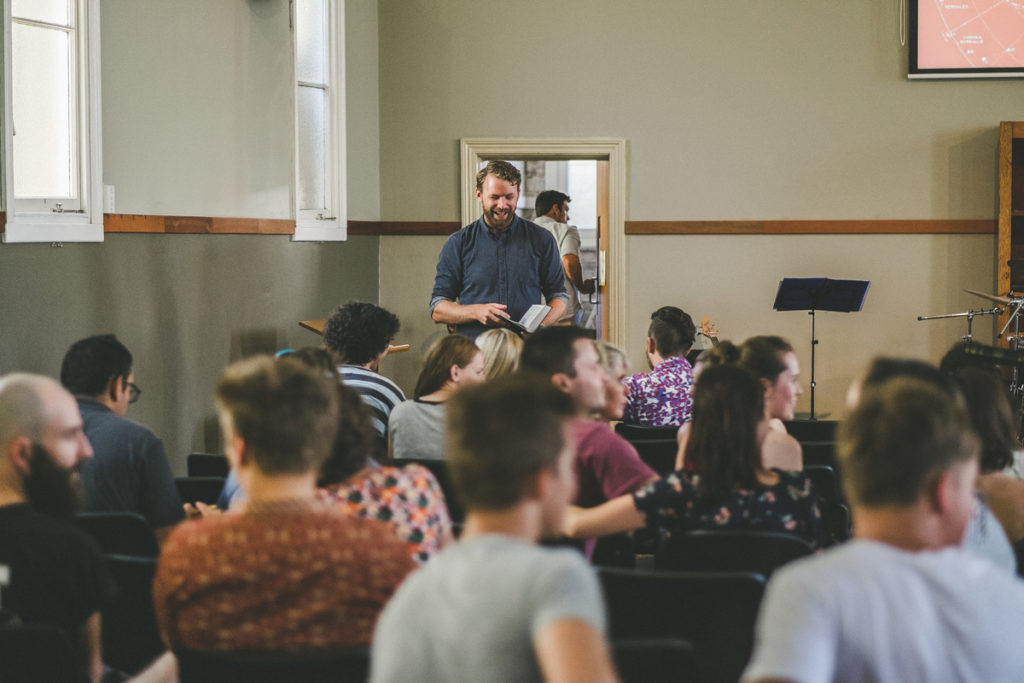When it comes to implementing apologetics into the local church, it is important to know that apologetics is already implemented through its members. This is because every follower of Jesus is an apologist by the sheer fact of his or her salvation.
Let me illustrate.
Imagine someone comes to you and asks, “Can you show me how to breathe?” This request would baffle you because the individual is already doing the very thing about which they are asking. The individual can only ask to breathe because he is already breathing!
Here’s some good news — when it comes to implementing apologetics into the local church, the church’s existence is evidence that apologetics is already implemented; the church is already “breathing” to employ the illustration mentioned above. The church’s existence is itself an apologetic of the Christian faith.
This is because, according to the Scriptures, apologetics is not only something the believer does but something the believer is. Everyone who confesses Jesus as Lord is, by virtue of that confession, an apologist. You cannot defend Jesus unless He has been sanctified as Lord (1 Peter 3:15), and the sanctification of Jesus as Lord is by its nature a defense of the faith in a fallen world. Therefore, salvation is itself an apologetic.
Apologetics is already implemented in the church because the church is made up of believers sanctifying Jesus as Lord.
The catch, therefore, is not about implementing apologetics so much as it is expressing its implementation in our lives. This is an important distinction because, otherwise, apologetics becomes something we turn on and off versus something that is an inherent part of the rhythm of the Christian faith (and thus the local church). We are ever-presently defending the faith because we live by faith, so the goal of implementing apologetics is to do so through our natural rhythms.
With this in mind, here are some practical ways to implement apologetics in the local church:
- You can implement apologetics through your weekly sermons
One of the most effective ways to implement apologetics in the local church is through the weekly sermon. Sermons are rooted in a selected text of the Word of God, and the preaching of a biblical text is an apologetic of the Christian faith.
Preachers can intentionally implement apologetics, however, by connecting the dots between God’s Word and the listeners’ context. For example, if the preacher is preaching from Proverbs 1:7, he can spend time detailing the epistemological foundations of rationalism and empiricism (worldly methods of determining truth in the modern age) versus God’s revelation. This shows the congregation how critical it is to find knowledge from God’s revelation versus man’s logic or experience. Knowledge is about God’s truth being revealed to man, not man working his way up to God.
- You can implement apologetics through weekly programs
One of the most significant ways to implement apologetics into the lifeblood of the local church is through the church’s weekly programs.
Most churches have childrens, youth, young adults, senior adults, and other small group ministries (like Sunday School). These are smaller, more intimate gatherings than the weekly worship time. Often, these opportunities include discussion times where the listener can ask questions about the biblical text, something not possible in a large group setting. These questions are typically related to challenges related to the text. For example, the book of Job prompts the question about God and evil. Leaders can point listeners to verses like Romans 8:28, which detail God’s sovereignty over evil, and then supplement the answer philosophically with other biblically-based responses that have been developed over the years.
- Implement apologetics through special programs like a Cinematic Theology night
Another way to implement apologetics into the local church is to host events that are evangelistic in nature. One example is to offer a “Cinematic Theology” night where you take a small group in the church (like the young adults) and watch a movie, followed by a theological discussion of the film.
Cinematic Theology nights are unique opportunities for participants to invite lost friends and showcase how God’s truth shows up in secular work. The goal of the evening is not to discuss whether the movie is good or bad but to compare the hero, problem, and solution in the story to God’s standards in Scripture. For example, if the selected film is a love story by Nicholas Sparks, the discussion can compare the film’s presentation of love to God’s definition of love in a passage like Ephesians 5, which employs marriage as an illustration for the gospel. This can help participants see and understand the power of God’s perfect love for mankind, which can be a formidable appeal to both the saved and lost.
For an example of how to implement a Cinematic Theology night, I recommend this framework by Ted Turnau.
There are many ways to implement apologetics in the local church. The key is to understand that apologetics is not something to be turned on and off but thoughtfully expressed through the steady rhythms of the church. This yields opportunities to equip and encourage believers and evangelize the lost as we seek to fulfill the Great Commission.
Published February 27, 2023




